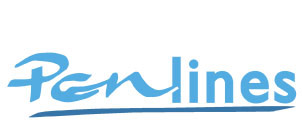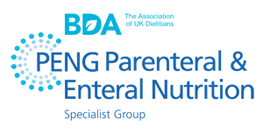Clinical Update COURSE

2018 PENG Clinical Update Course
The winners of a FREE place on the 2018 PENG Clinical Update Course, share their experiences following the residential week, which took place during June 2018.
Helen Beagan, Senior Dietitian in Home Enteral Feeding
I was very grateful to learn that I was one of five winners of a free place on the PENG Clinical Update Course 2018. The Course undoubtedly met, if not exceeded, expectations that I had prior to attending the course. I have been working as a Dietitian mainly in Nutrition Support for three years, and I am fairly new into my role as a Senior Dietitian in Home Enteral Feeding. Therefore, I felt it was an appropriate time to attend the course to update my skills and knowledge.
The course involved three main elements: pre-coursework assignment; 4-day residential at Queen Margaret University, Edinburgh; followed by a post-course assignment.
The pre-coursework was effective, as it enabled me to begin to practice critical analysis of literature, which was beneficial to refresh my knowledge and to prepare me for learning about this in more depth in the critical appraisal lecture and the workshop on the course. It also directed me to some pre-course reading, which set the scene for what we would cover during the residential week.
The residential week presented an excellent opportunity for learning, as well as networking with a range of dietitians from all over the UK and Ireland with experience in nutrition support. It offered a brilliant opportunity for us to share ideas and practice. Living on campus and close to Edinburgh city for the week was very convenient as it enabled us to explore our surroundings in the evenings, while making sure that we attended our lectures promptly each day.
The structure of the week was a combination of lectures and workshops from a variety of experienced lecturers.
I felt privileged to have lectures on the updated PENG guidelines prior to their release from the dietitians that have been involved in the research behind them. Receiving updates like this are essential to our continuing practice development. The workshops were particularly beneficial as they provided an opportunity to consolidate and practice skills and knowledge gained from the lectures. The practical workshops on anthropometric measurements were brilliant as they encouraged us to review current evidence for these measurements and to incorporate these into our daily practice. The enteral feeding workshop, including placement of NG tubes and nasal retention systems, was insightful as it was a new learning experience. In my current role, I have been trained to competently change balloon gastrostomies and conduct routine PEG care and maintenance. This was demonstrated to delegates in the workshop. The workshops promoted extended skills for dietitians to support autonomy and to complement our role as dietitians, enabling us to provide efficient and effective care for our patients.
The post-coursework will be beneficial as I can incorporate the critical appraisal skills gained from the course to formulate a literature review in an area of my choice.
In conclusion, I would definitely recommend this course to dietitians working in nutrition support for continued professional development. The tutors on the course were all very knowledgeable and approachable and have inspired us to challenge our own practice, use our clinical judgement and to critically review evidence. It was a brilliant week and I have left with lots to reflect on and have been inspired to improve my own practice.
Charlotte Bryant, Community and Macmillan Dietitian
The PENG Clinical Update Course was a brilliant experience to update and consolidate invaluable knowledge in a number of areas within the enteral and parenteral field.
Before attending the residential part of the course, we were required to complete pre-coursework. I was nervous about this as I haven’t been in university for a while, but I found that this was a useful exercise as it got me back into the flow of writing essays and referencing, which has prepared me for the post-coursework.
During the 4-day residential part of the course, we attended a range of workshops and lectures. These were very informative and were presented by specialists which obviously had a wealth of knowledge and were very enthusiastic about their subject areas. I particularly enjoyed the lectures on the metabolic response to starvation and feeding and estimating protein and energy requirements. It was very interesting to get information about the upcoming revised PENG Pocket Guide and to have workshops to gain experience with using the new method of estimating requirements. The practical workshop focusing on enteral feeding tubes was insightful and made me empathise with patients/carers who have to deal with feeding tubes at home. I also found the mixture of lectures and practical workshops well-balanced.
The course has motivated me to be more critical when reading studies and when following guidelines; and has highlighted that clinical judgement needs to be considered in all that I do. The critical appraisal lecture and workshop have prepared me for the post-coursework, which I feel more confident in completing.
Throughout the course I have had a named tutor who is very supportive and is happy to answer questions if required. During the residential we had tutor sessions where we could discuss pre-coursework feedback and the post-coursework set. Before and after the residential, tutors are happy to be contacted by email.
As well as contributing to my professional development, I enjoyed visiting the lovely city of Edinburgh and it was fantastic to meet up with so many dietetic colleagues and to liaise about our different roles and experiences in the work place. The course is useful for a diverse range of dietetic specialities. There was a welcome meal on the first residential evening, which was great for networking and also had many company rep stands to explore.
If anyone is apprehensive as to whether they want to do the course, I would strongly recommend it as it provides invaluable information to help grow as a dietitian and it gets you thinking! Thank you to all involved that helped make the course a great success this year.
Hannah Pillinger, Specialist Colorectal Dietitian
Attending the PENG Clinical Update Course was a fantastic opportunity and one which I had always hoped to achieve at some point in my career. It was an invaluable experience that has contributed greatly to my professional development, allowing me to engage with clinical study at a Masters level.
The formative pre-coursework element was an interactive learning experience, completing nutritional assessment on patients alongside a review of the current guidelines in place for monitoring enteral and parenteral nutrition support at my Trust. This made me look more closely at my current practice and identify areas for improvement to help improve patient outcomes. The written and verbal feedback received for this element was also very helpful in preparing my written skills for the post-coursework literature review.
The residential part of the course provided the perfect learning environment away from the pressure of work.
I was able to fully immerse myself in study, which allowed me to absorb the information and think about its application into my own clinical practice. It was also a great time to liaise with other dietitians, share learning and experiences.
Attending the course in 2018 was particularly interesting as the updated PENG Pocket Guide was due for release and, therefore, I enjoyed learning about the new updates, the evidence behind them and the need to use our own clinical judgement when monitoring patients. Linked to this, I now have a greater appreciation for appraising the evidence and why it is important to do this when new evidence is generated. After completion of my post coursework, I also now feel more confident to do this and will continue to critically appraise the evidence to make an informed judgement about it and its relevance to clinical practice. In particular, I enjoyed the updates on refeeding syndrome and calculating requirements. Also, the interpreting fluid and electrolytes session was very applicable to my own daily practice. Although I do not currently see patients for parenteral nutrition (PN) support,
I do work closely alongside the nutrition team in my role as a Colorectal Surgery Dietitian, therefore it was interesting to learn about the type of access routes and decisions behind giving PN versus enteral nutrition (EN).
The interactive EN support workshop was brilliant, as I had the opportunity to place an NGT and bridle on a dummy model, something which I would never get to do in practice. I can now emphasise with patients who have nasal enteral feeding tubes placed and can better explain the process to them when discussing this beforehand.
The tutors were all very friendly and approachable throughout the residential week and I would encourage more dietitians to take the opportunity to apply for a free place on the PENG Clinical Update Course.
Michelle Waldie, Specialist Dietitian, Macmillan Head and Neck Local Support Team
The PENG Clinical Update Course was something that I had wanted to do for some time. For me, it was an opportunity to take time out of my busy work life to give my dietetic practice more thought and consideration. To consider what evidence there was to support my clinical judgment and to look at how I could improve my practice.
The course is well-structured and there is a good mix of lectures and workshops. Being able to share and listen to what other people are doing in their day to day practice in the context of what resources they had available to them was insightful.
I appreciated the opportunity to look at the new refeeding guidelines and consider what this means for my patients who are community-based and spur me on to consider collecting some data to help inform this aspect of dietetic care.
I was keen to get a better understanding of what outcomes I could be recording, such as grip strength or triceps skinfold thickness, and although we did look into this I will still need to think on this more deeply to understand how this relates to my own practice. What the course allowed was for me to practice these techniques and become more confident with them. I was particularly pleased to have a pair of callipers to take back to work with me. It also made me look at other functional assessment tools, such as the sit-to-stand test, and consider if these sorts of tests commonly used by physiotherapists would be useful in my patient group. It was interesting to look into alternative methods, and emerging methods, of calculating body composition and consider how this may impact dietetic practice.
The most valuable thing for me was refreshing my knowledge of how to critically appraise a journal article and realising that there is a difference between what is statistically significant and clinically significant. Honing this skill, I feel, is particularly valuable; being able to make sense of a journal article, and understanding if the study is of good quality and, if so, how it may affect your own practice or advice.
I was not aware that the estimating requirements section of the PENG Pocket Guide had been rewritten and therefore found it very useful to have the opportunity to look at this and go through some examples. It was useful to see how little evidence there is to support our practice and to bear this in mind when calculating requirements.
I have no parenteral nutrition experience and enjoyed getting an insight into this aspect of dietetic care.
I would recommend this course to dietitians who are new to dietetics to gain confidence and broaden their knowledge.

